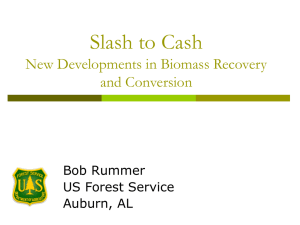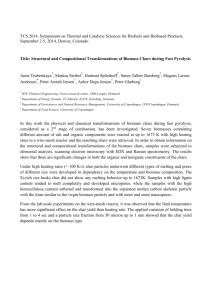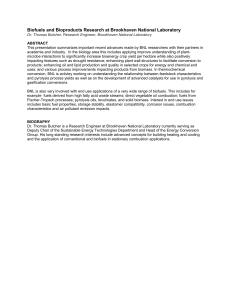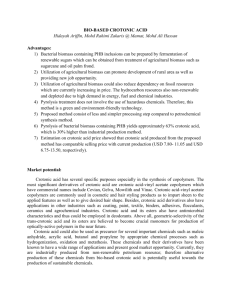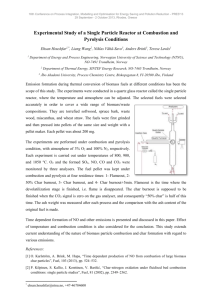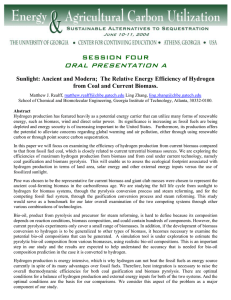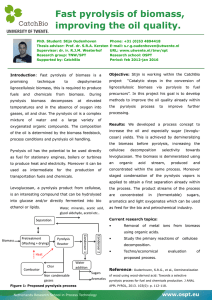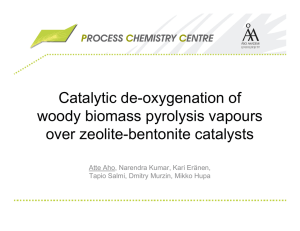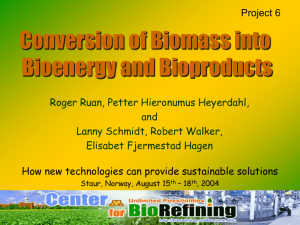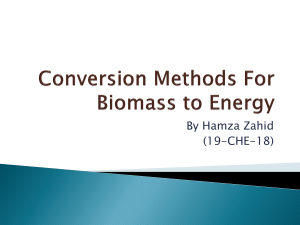Biomass Conversion
advertisement
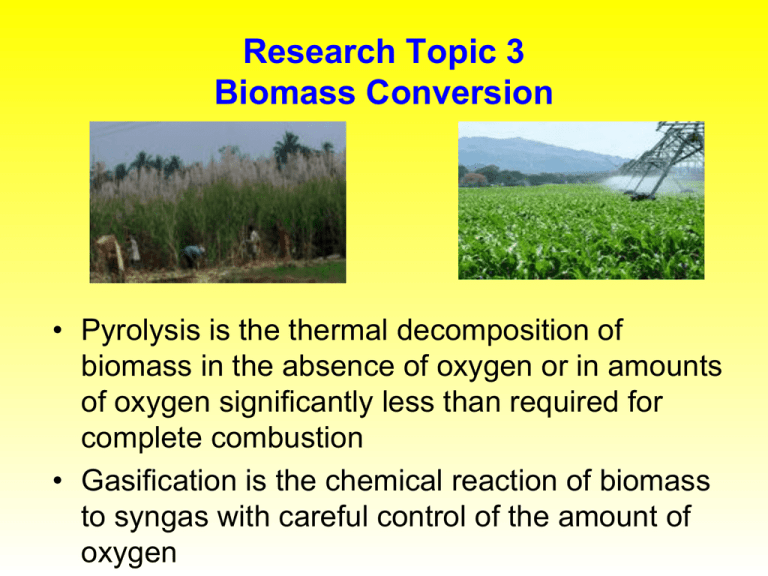
Research Topic 3 Biomass Conversion • Pyrolysis is the thermal decomposition of biomass in the absence of oxygen or in amounts of oxygen significantly less than required for complete combustion • Gasification is the chemical reaction of biomass to syngas with careful control of the amount of oxygen Applications and New Concepts Bioethanol Reforming C2H5OH + 3H2O 6 H2 + 2 CO2 Ho298 = 173.5 kJ/mol • Exploits advances in bioethanol production • Allows CO2-neutral production of hydrogen Pyrolysis Products Gases (10-20%) (Mainly CO, CO2, CH4, H2, H2O) Solid Biomass Tar (Bio-oil) (60-75%) (High molecular weight liquids, volatile at reaction temperature) Char (10-20%) (Solid carbonaceous residue) Reaction Scheme Gas + Bio-oil 425-600 oC Char Gas Bio-oil Char Biomass Physical Processes Heat transfer by conduction, convection and radiation Pressure gradients Chemical inside the degrading solid Processes Surface regression, crack formation, swelling, shrinkage Primary degradation to form char and gases Secondary reactions, polymerization, cracking Conventional Pyrolysis 4 Biomass feeder 3 Ceramic candle filter 2 Cyclone 7 Volumetric gas-meter 6 Blower 1 Fluidized-bed gasifier 5 Water and tar condensation system Catalytic Processing of Pyrolysis Oil Hydrodeoxygenation (Conventional CoMoS/Al2O3, NiMoS/Al2O3) (New: Ni2P, WP, VN, Mo2C) Hydrocracking (USY, SiO2-Al2O3, ZSM-5, Pt/Al2O3, ) Reforming (Ni/Al2O3, Rh/Al2O3, Ni2P, Mo2C) Other possibilities Wide-pore zeolites, mesoporous solids Project Concepts • New reactor design for combined pyrolysis/catalysis • Recycle of gases for fluidization and reaction

